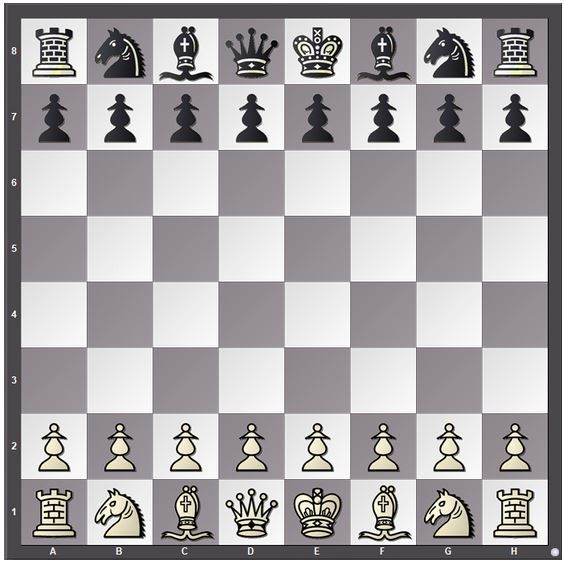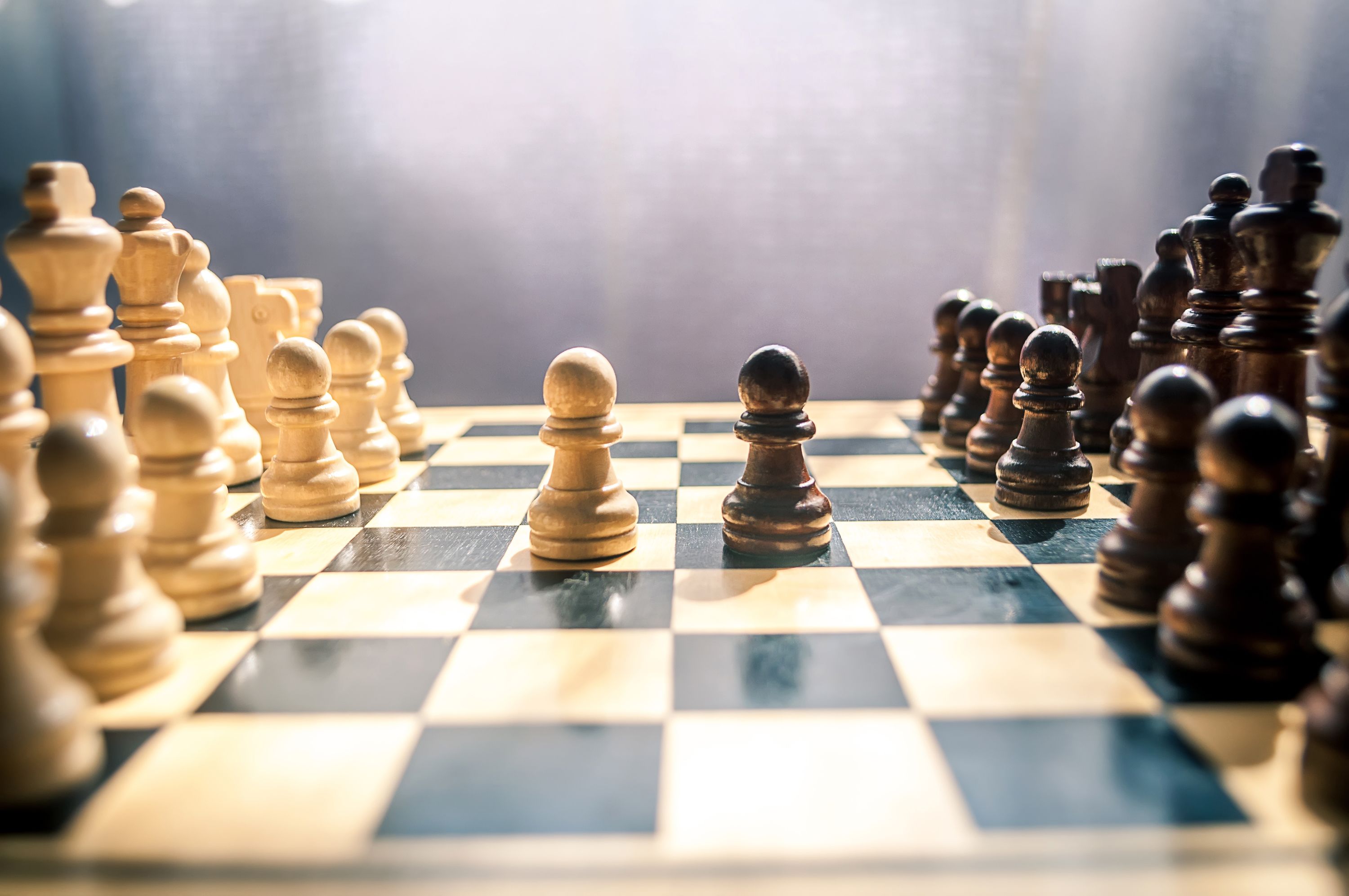Chess and Engines: How Machines Changed the Game
Wiki Article
Why You Need To Play Chess: The Advantages of Participating In This Classic Pundit Challenge
Chess is greater than a basic video game; it offers as a rigorous psychological exercise that sharpens numerous cognitive abilities. Players involve in calculated thinking and establish problem-solving abilities, which can have long-term benefits in day-to-day life. The self-control required for renovation promotes patience and strength. Yet, the real significance of chess lies not simply in its intellectual needs but in the connections it cultivates within a community. Checking out these dimensions reveals much concerning why chess continues to be classic.Enhancing Cognitive Skills
Playing chess substantially improves cognitive abilities, making it an important task for people of all ages. The game needs strategic reasoning and insight, requiring gamers to anticipate their opponent's actions while formulating a winning technique. This psychological exercise develops emphasis and concentration, crucial elements of cognitive feature.
Chess urges creative thinking, triggering gamers to check out cutting-edge tactics and non-traditional techniques to the game. As they browse the chessboard, individuals create patience and strength, necessary attributes for cognitive growth. On the whole, the multifaceted cognitive benefits of chess make it an improving search, promoting lifelong psychological dexterity and intellectual engagement.
Increasing Problem-Solving Talents
Numerous research studies have actually revealed that taking part in chess can substantially improve analytical capacities. The game requires players to examine complicated placements and prepare for the opponent's moves, promoting important assuming abilities. As they browse various scenarios, chess players develop the ability to review multiple outcomes and make tactical decisions under pressure. This process enhances their ability to approach real-life problems with a structured state of mind.Chess promotes the identification of patterns and the application of sensible thinking, abilities that are necessary in efficient analytical. Players learn to analyze threats and incentives, fine-tuning their judgment in unsure circumstances. The repetitive nature of chess play enhances these abilities, enabling individuals to move their boosted analytical abilities to academic and specialist contexts. Eventually, chess works as a valuable device for any person seeking to develop their logical skills and improve their total cognitive functioning in difficult scenarios.
Cultivating Patience and Technique
While taking part in chess can be an interesting experience, it additionally calls for a substantial degree of persistence and discipline. Gamers need to learn to meticulously think about each move, considering potential results and methods. This thoughtful approach cultivates an attitude that values long-term success over prompt satisfaction. In chess, rash decisions commonly lead to unfavorable consequences, strengthening the importance of taking one's time to evaluate the board and prepare for an opponent's responses.
Self-control is more grown through consistent method and research study. Gamers frequently devote hours to enhancing their abilities, examining methods, and examining previous video games. This dedication to understanding the video game instills a sense of responsibility and perseverance, vital attributes that expand past the chessboard. Inevitably, the mix of persistence and self-control not just improves a player's chess capabilities however likewise adds to individual development, furnishing people with necessary devices for maneuvering difficulties in different aspects of life.
Fostering Creativity and Creative Imagination

Strategizing relocations includes not simply reasoning yet also the ability to anticipate an opponent's actions, urging gamers to envision multiple pathways and choices. As players explore different techniques, they discover to introduce and adjust, boosting their imaginative problem-solving skills.
Furthermore, the game's complexity invites players to explore unique ideas Read Full Report and methods, causing personal styles of play. This expedition supports a feeling of creative expression, as each player crafts their own approach to challenges on the board. Ultimately, chess becomes a canvas for creative thinking, permitting people to reveal their distinct viewpoints while creating their imaginative capabilities
Structure Social Connections and Community
Playing chess uses chances for individuals to network via competitions and neighborhood chess clubs. These atmospheres foster connections amongst gamers, developing a sense of neighborhood centered around a common interest. Taking part in these tasks not just improves skills but additionally develops enduring relationships.Networking Via Tournaments
When participants take part in chess competitions, they commonly discover themselves involved in a lively community of similar people. These events give an exceptional platform for gamers to forge links, share techniques, and celebrate their interest for the game. Participating in friendly competitors fosters friendship, as gamers from diverse histories collaborated to challenge each various other. Networking opportunities are plentiful, with many participants creating long lasting relationships that expand beyond the chessboard. In addition, these tournaments frequently bring in sponsors and chess enthusiasts, additionally enhancing the capacity for expert connections. As gamers take part in discussions regarding methods and experiences, they build a network that can result in future cooperations and chances within the chess globe and past.Local Chess Clubs

Supplying an Enjoyable and Involving Challenge
Chess provides an uniquely promoting experience that astounds gamers of every ages, as it combines see tactical thinking with the excitement of competition. This classic video game offers an engaging challenge, urging people to believe seriously and artistically. Each match unfolds as a fight of wits, where gamers should anticipate their opponent's steps while devising their own methods.The intellectual interaction chess supplies is matched by its capacity to amuse. Gamers commonly locate themselves submersed in the video game, shedding track of time as they navigate complex positions and tactical problems (Chess). This enhanced focus fosters a feeling of achievement, specifically when a hard action causes success
Chess promotes social communication, permitting players to bond over common experiences and obstacles. The video game's limitless variations assure that no 2 sessions are alike, keeping participants passionate to refine their skills and approaches. This vibrant blend of obstacle and satisfaction makes chess an alluring pursuit.
Often Asked Questions
Can Chess Be Played Online or in Individual?
Chess can be played both online and personally. Online systems provide gamers the convenience of competing versus opponents worldwide, while in-person video games foster social communication and physical existence, enriching the overall experience.What Age Is Ideal to Begin Learning Chess?
Specialists suggest that youngsters can start learning chess as very early as age five or 6. At this age, they can grasp standard concepts, boosting cognitive skills while cultivating a love for the video game that lasts a life time.Exist Chess Tournaments for Beginners?
Yes, there are chess competitions especially click resources developed for newbies. These events provide a supportive atmosphere for novice players to obtain experience, improve their abilities, and enjoy the affordable spirit of chess without dealing with advanced opponents.How much time Does It Take to Become Skillful at Chess?
Coming to be skilled at chess commonly requires consistent method over a number of months to years. Aspects such as specific devotion, previous experience, and study of techniques considerably affect the moment required to get to an experienced degree.What Resources Are Readily Available for Learning Chess Strategies?
Numerous resources exist for learning chess strategies, including online tutorials, publications by distinguished writers, chess applications, and interactive web sites. Lots of gamers likewise take advantage of joining local clubs or joining online discussion forums for real-time understandings.Report this wiki page